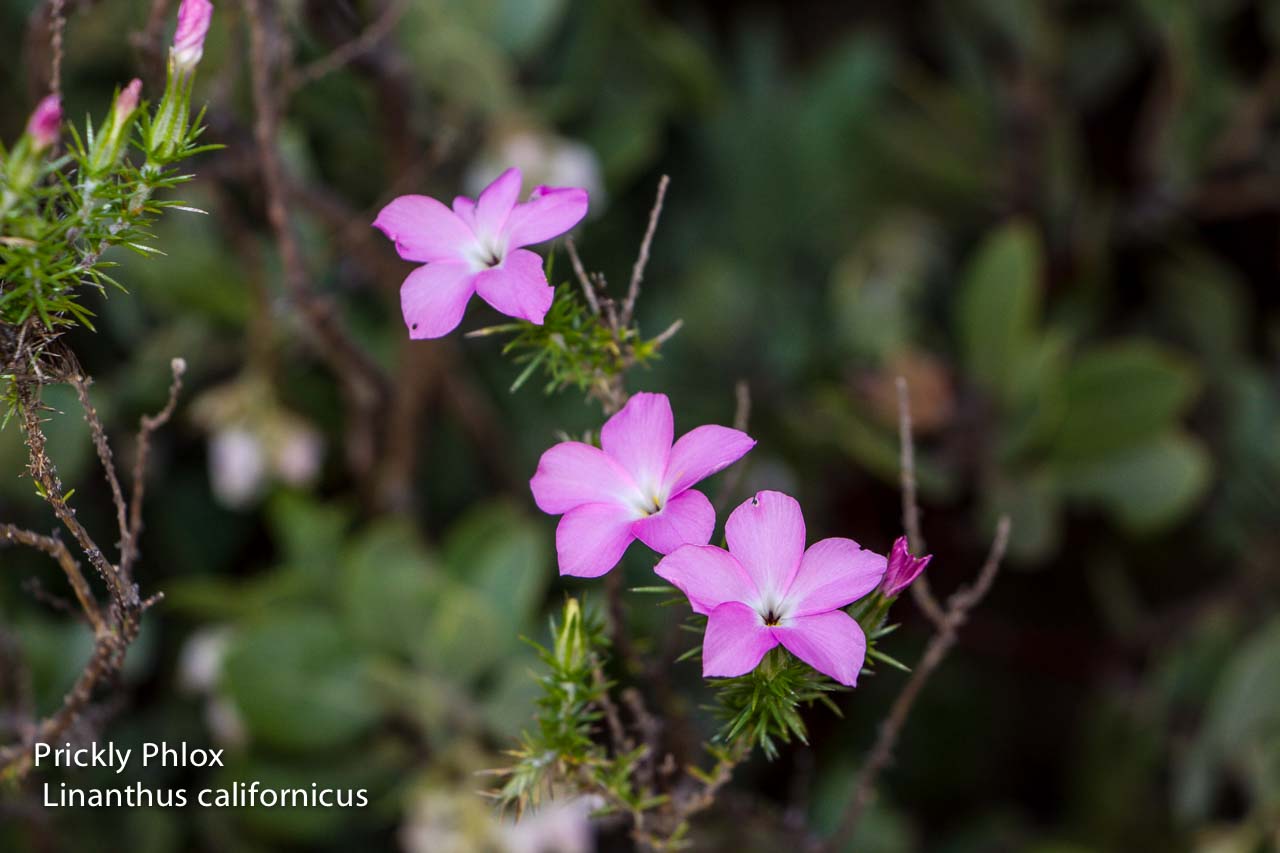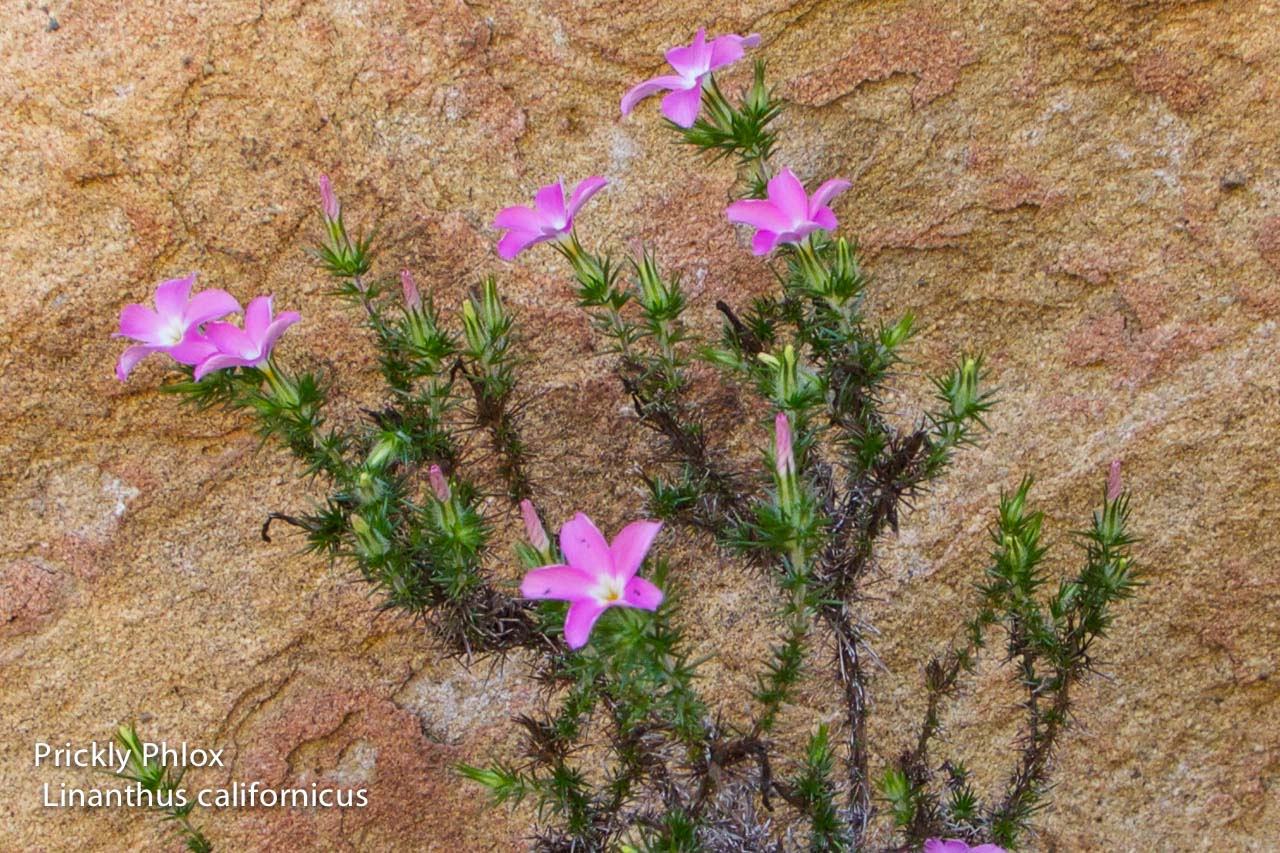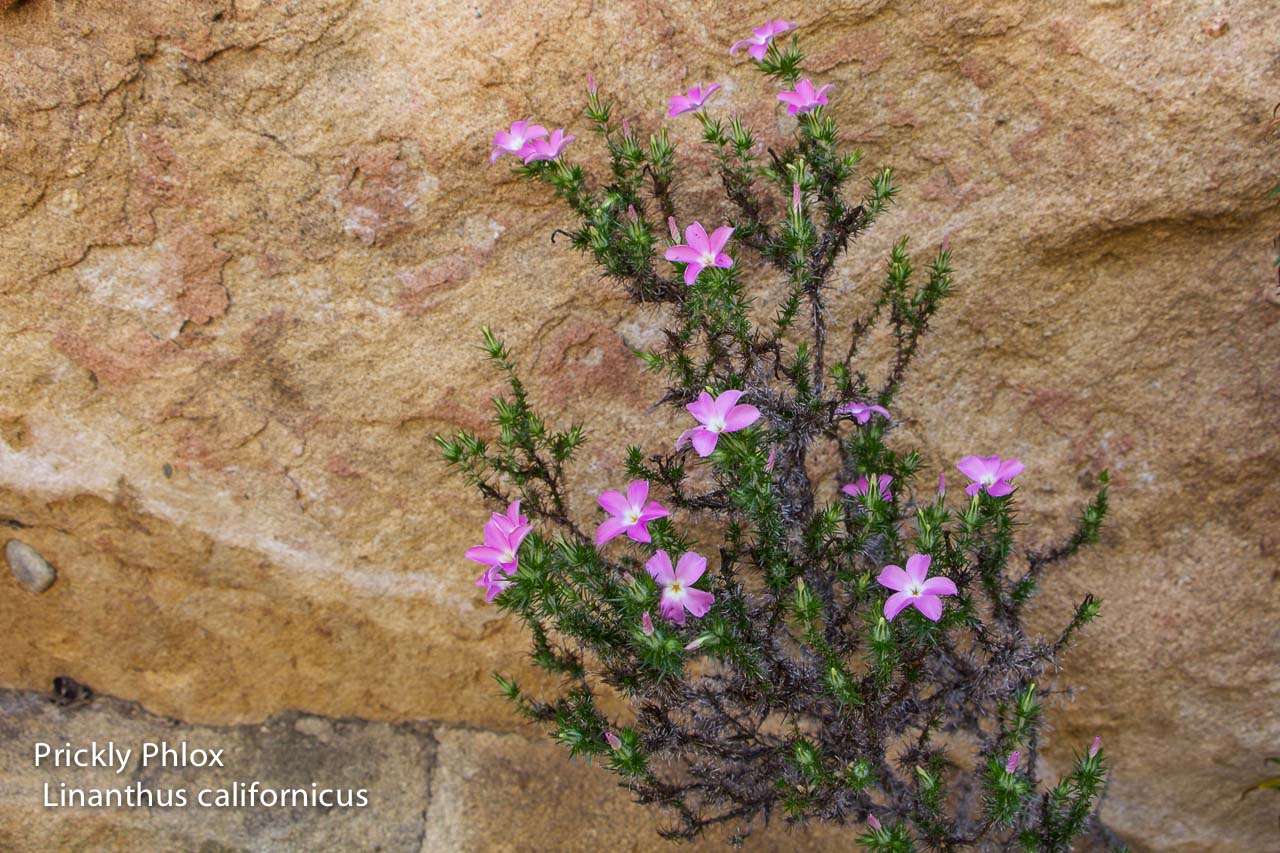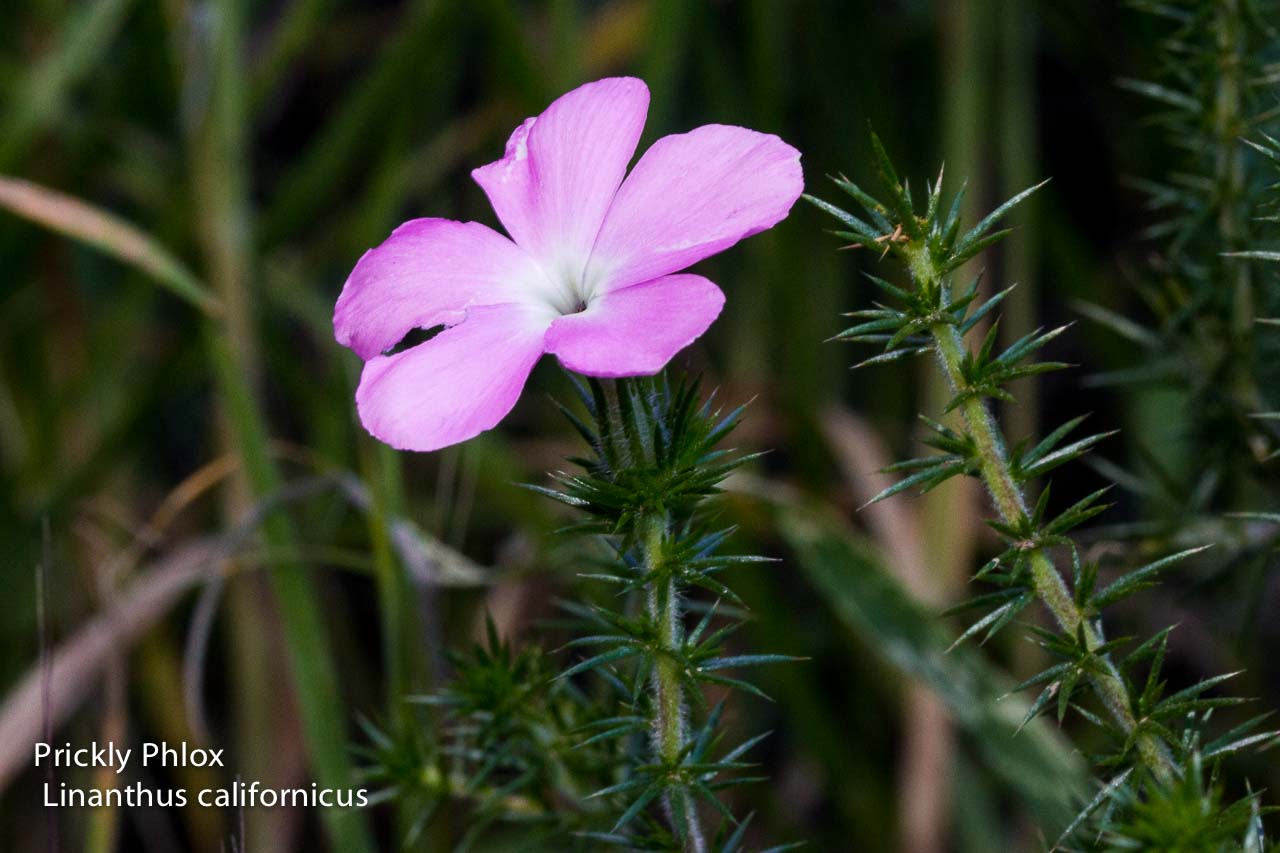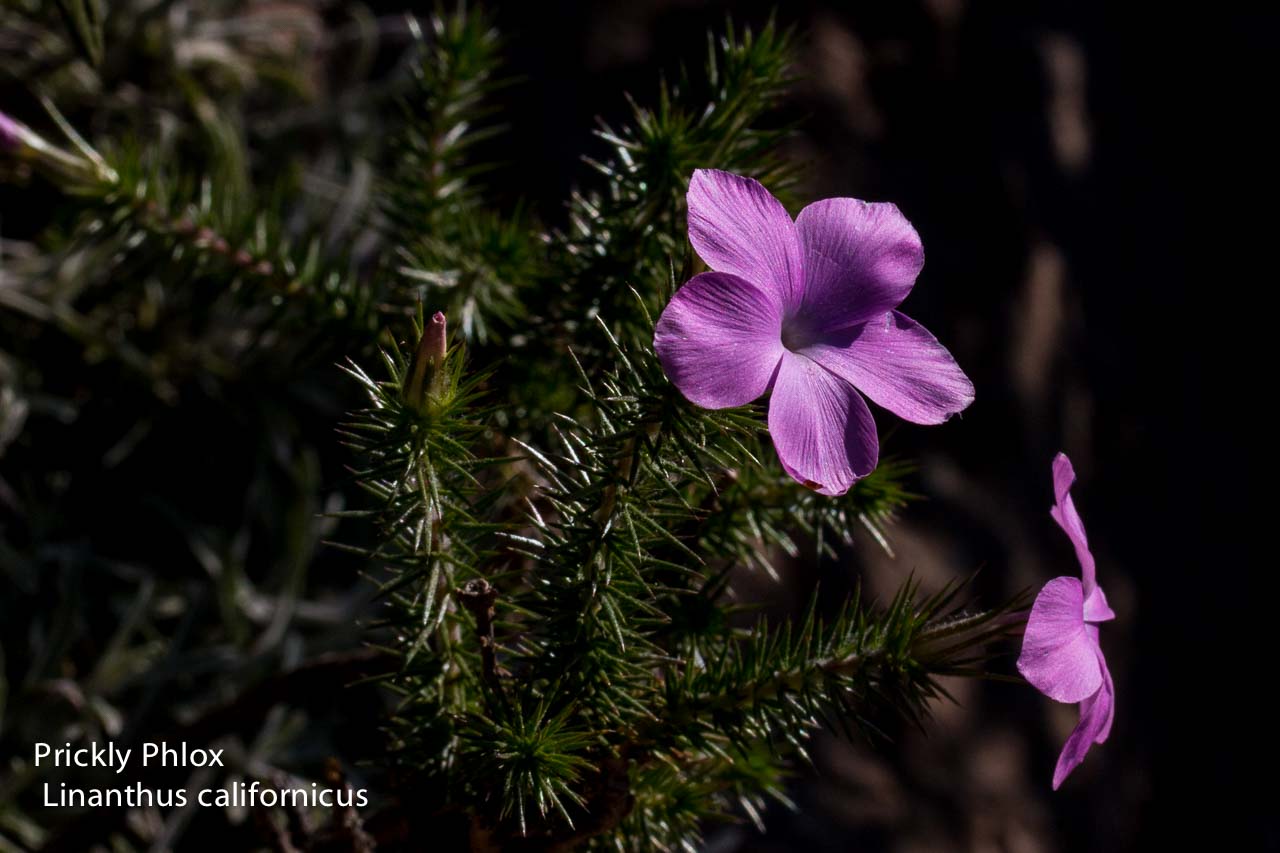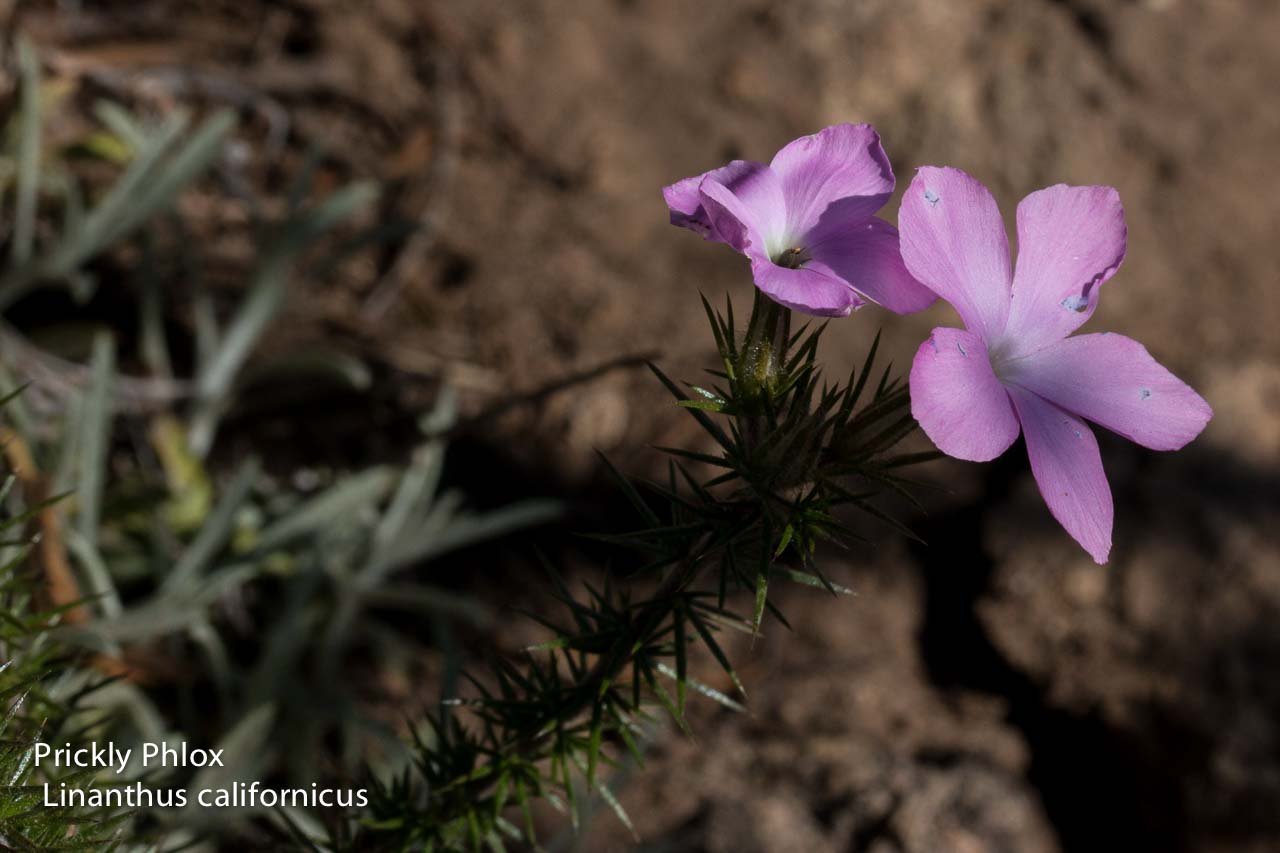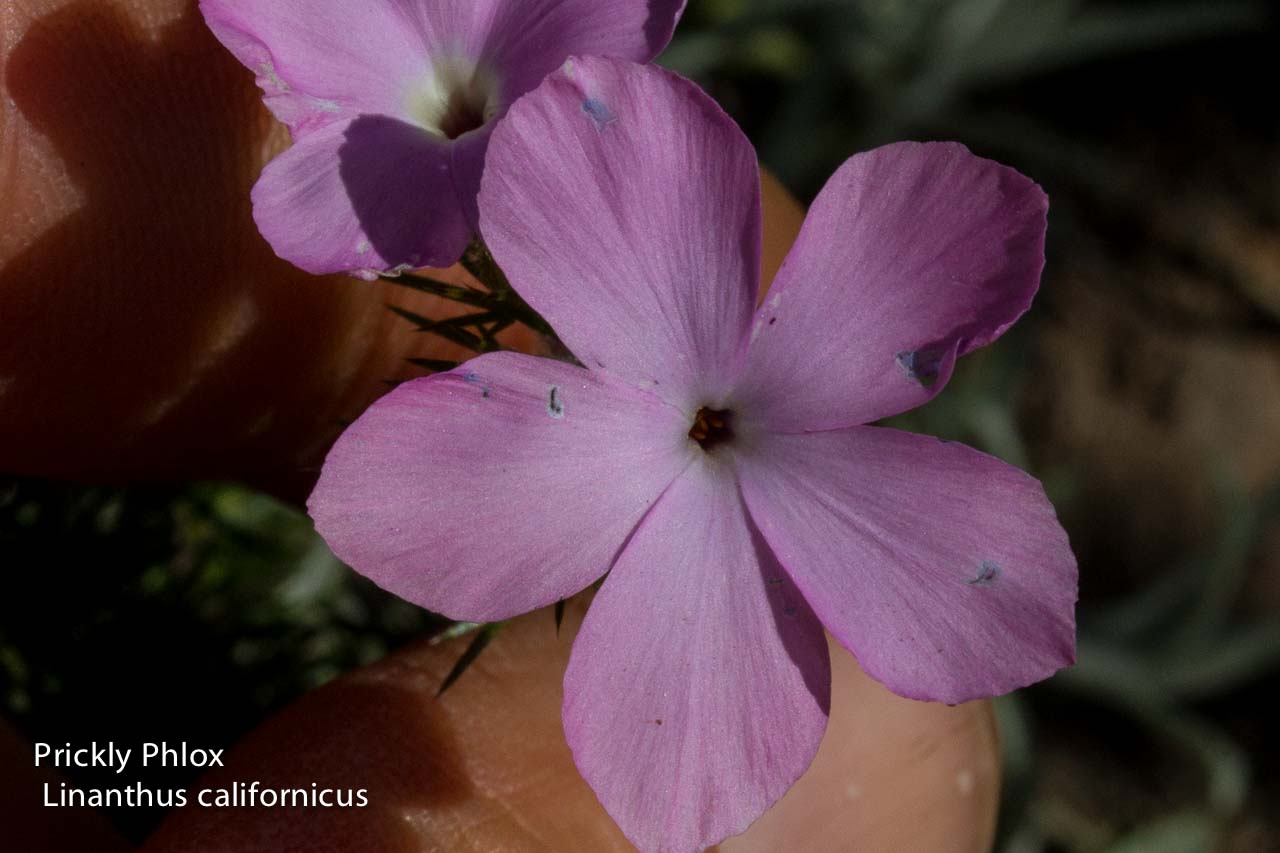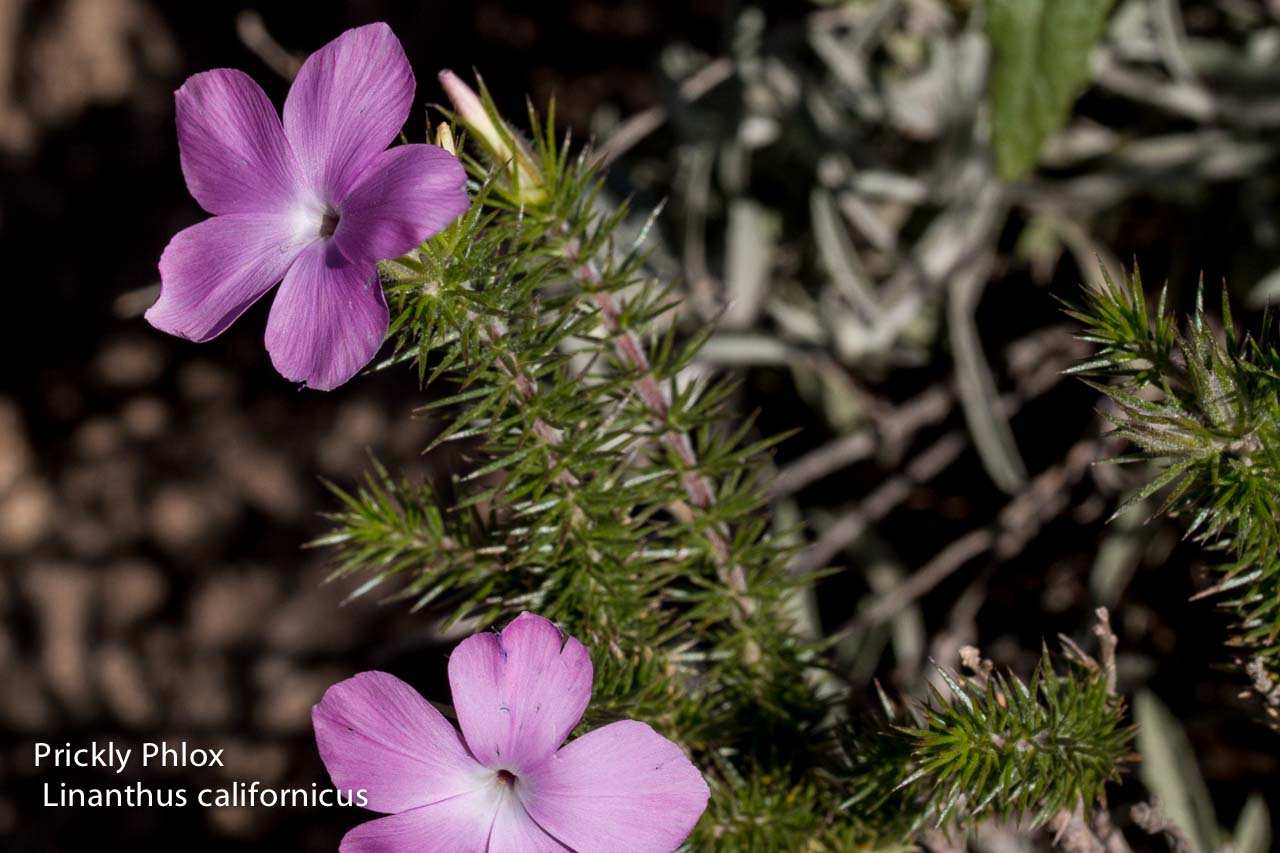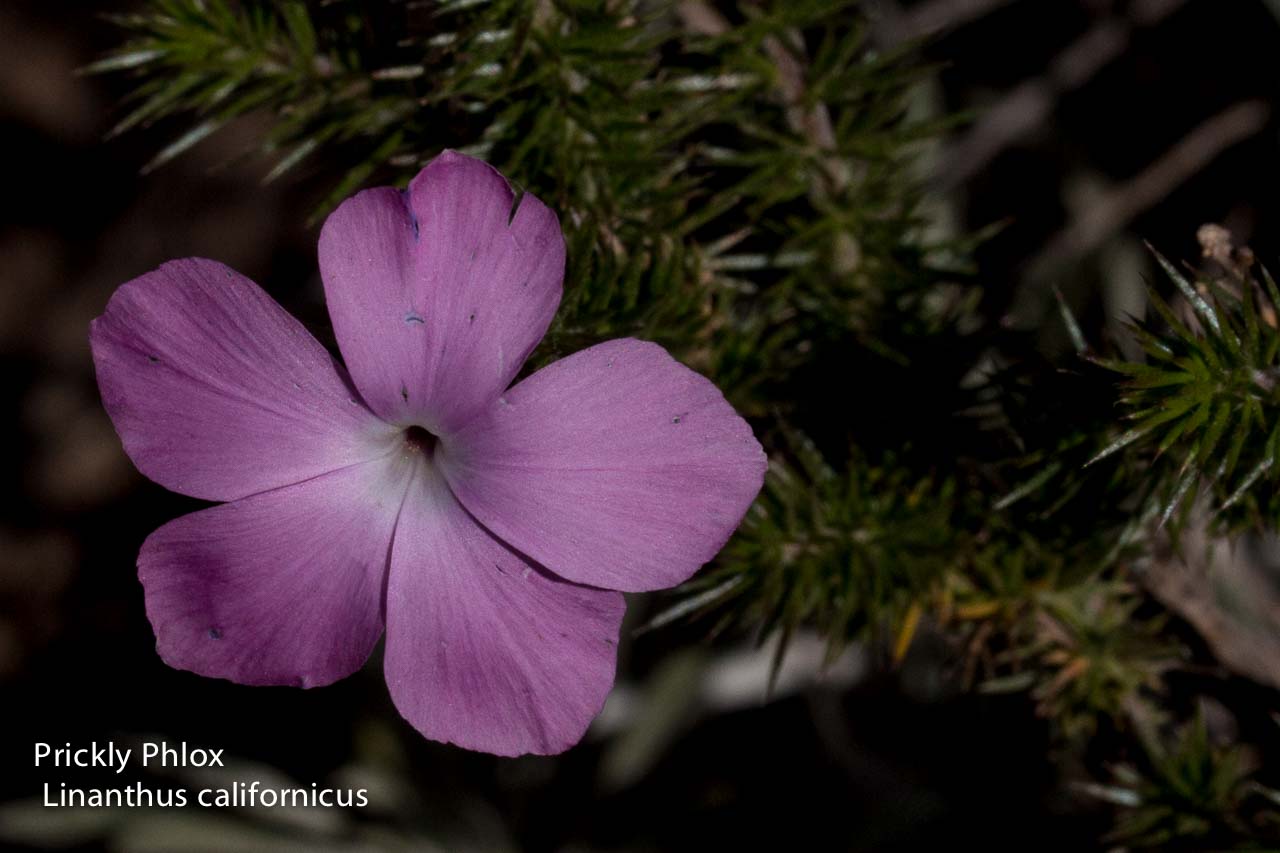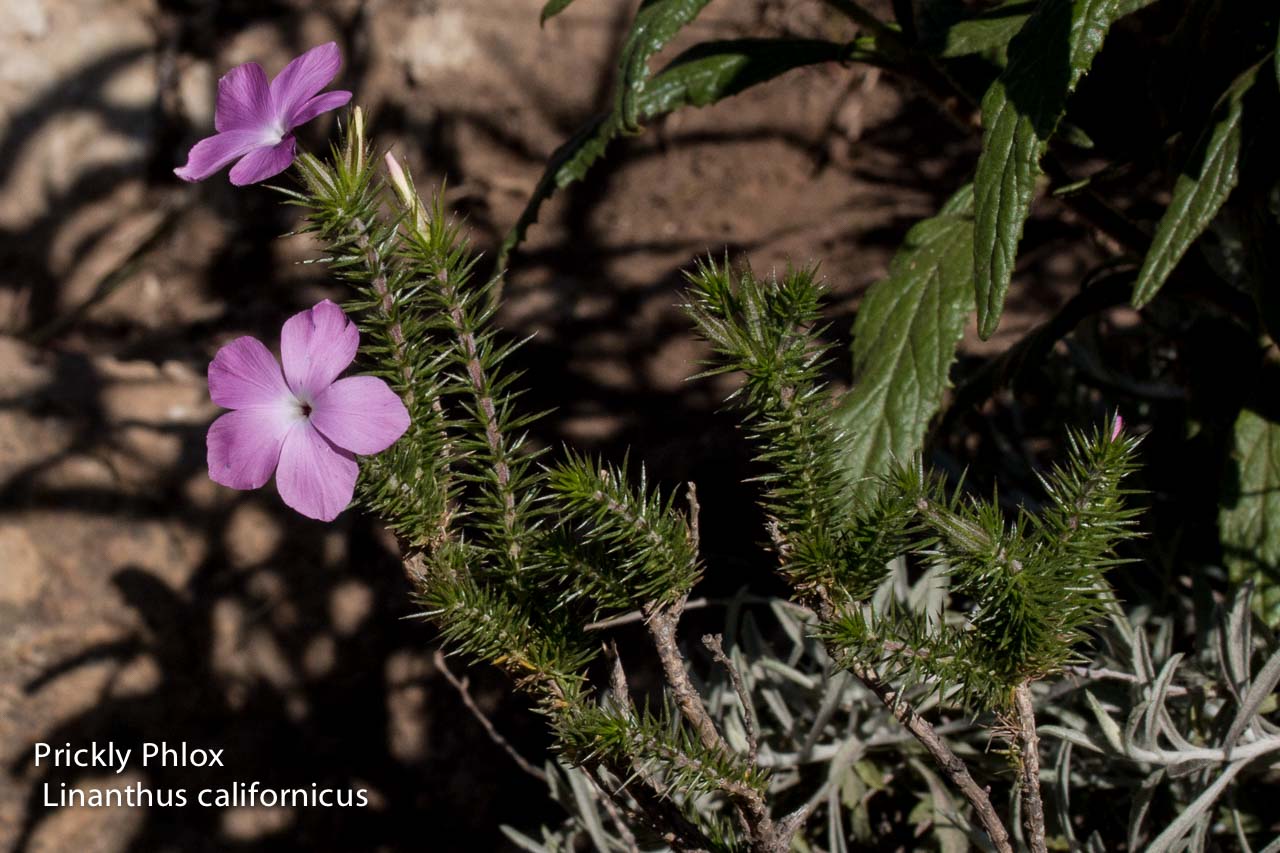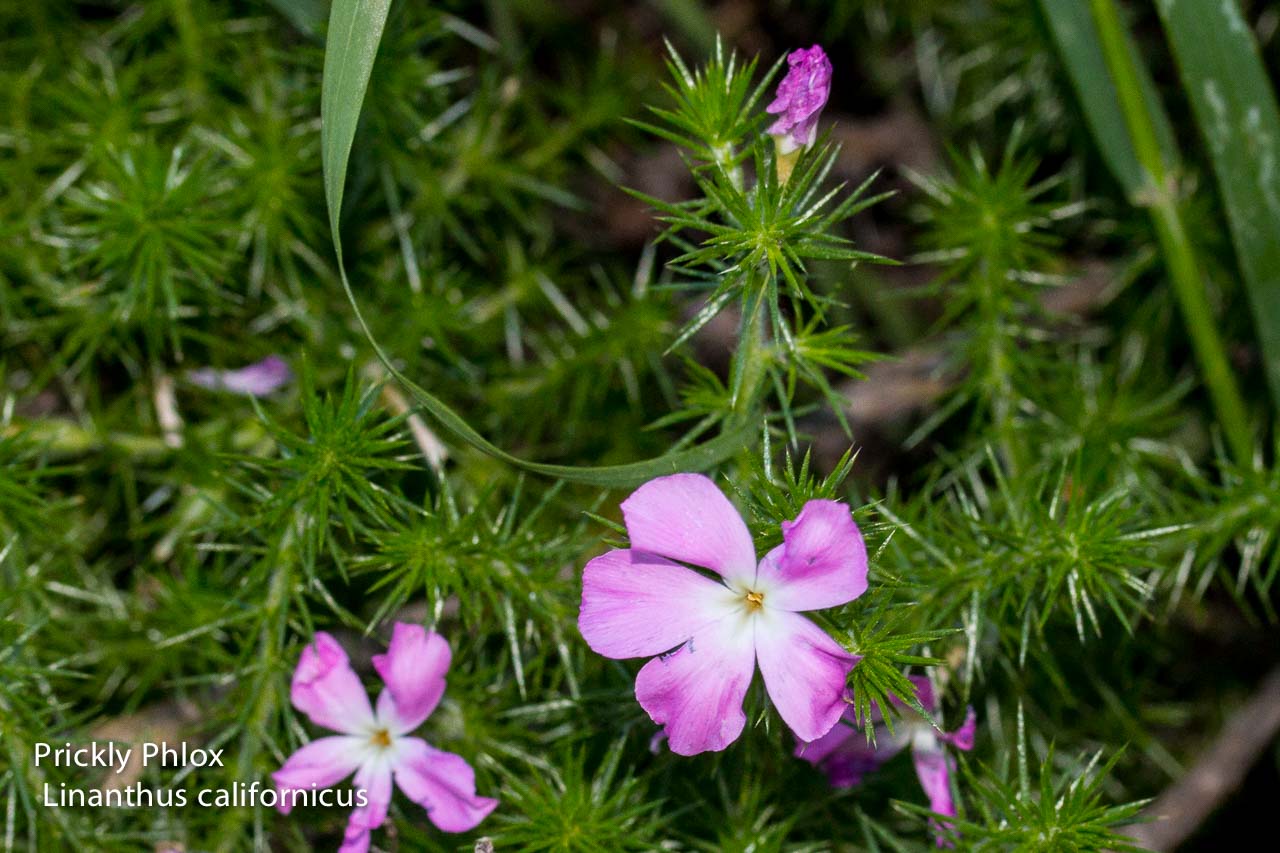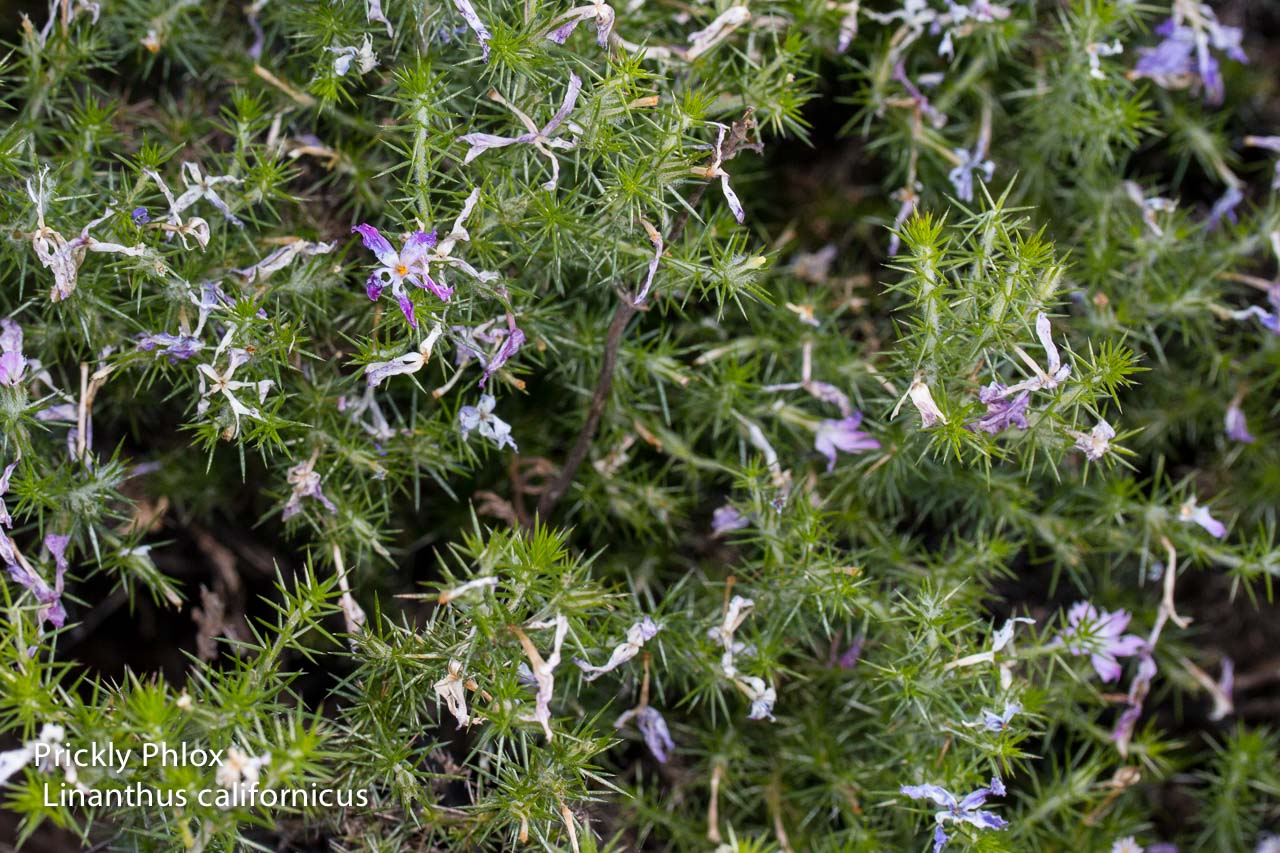Prickly Phlox
- Linanthus californicus
| Common Name(s): | Prickly Phlox |
| Scientific Name: | Linanthus californicus |
| Family: | Polemoniaceae (Phlox) |
| Plant Type: | Perennial |
| Size: | up to 1 meter |
| Habitat: | Chaparral |
| Blooms: | March to June |
| Fire Response: | Germinate from Seed |
Prickly Phlox or Linanthus californicus is a tap-rooted, widely-branched shrub with wooly long, soft, matted hairs that are densely lined with clusters or bundles of prickly needle-like alternate leaves (it is a Phlox).
Native to California, this perennial is woody (one of the benefits of being a perennial is that you live more than a year and can invest energy into creating a more durable structure). You can believe the common name description (Prickly) of this plant! The showy flowers are clustered on the outer edges of the plant, and range in color from pink to lavender to white. Flowers are open during the day and twist closed at the end of the day. The flower has five petals, white center, a narrow throat with some yellow stamens often visible. This is one of the flowers that does not project its reproductive organs up into the air. Pollinators have to crawl inside the narrow tube. Prickly Phlox can have dozens of the one inch round flowers in bloom from March to June. The bright pink patches of flowers will catch your eye and if you are not careful the leaves will remind you not to touch this plant.
This plant can found in a variety of places: scrub, forest, coastal strand. This plants normal range is below 1500 meters in mountains along the coast from San Luis Obispo to Camp Pendleton and other mountain ranges in South Western California. I have seen this plant in several places: Sandstone Peak, Saddle Peak and Boney Ridge.
For any Botanists reading this, the scientific name was changed in recent years from TJM1 Leptodactylon californicum changed to TJM2 name Linanthus californicus.
Link to Calflora.net - the best source of this fascinating information.
Name Origin: from the Greek, linon, flax and anthos, flower. californicus, references our lovely state.
Contributed by George Sherman
Featured Plants in the Polemoniaceae (Phlox) Family:
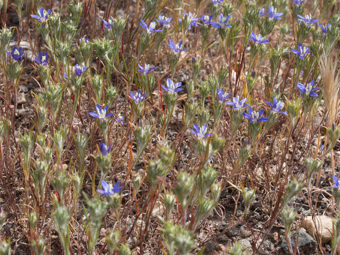
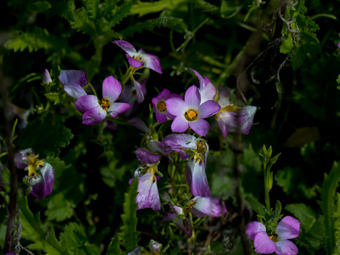
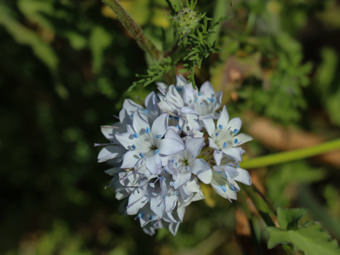
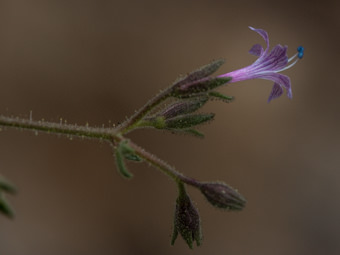
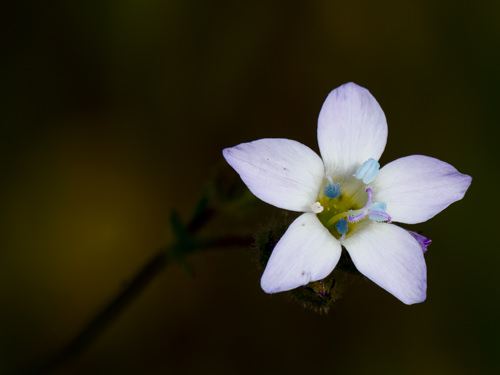
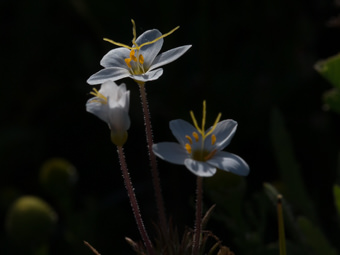
Last modified: August 21 2024 15:19:01.
Number of Images: 13
Image Size Total: 2,135,801
References:
Wildflowers of the Santa Monica Mountains, by Milt McAuleyFlowering Plants: The Santa Monica Mountains, Coastal and Chaparral Regions of Southern California, by Nancy Dale
Chumash Ethnobotany: Plant Knowledge Among the Chumash People, by Jan Timbrook
Leaf Shapes Primer - Botanical Terms for Leaves: - Link

